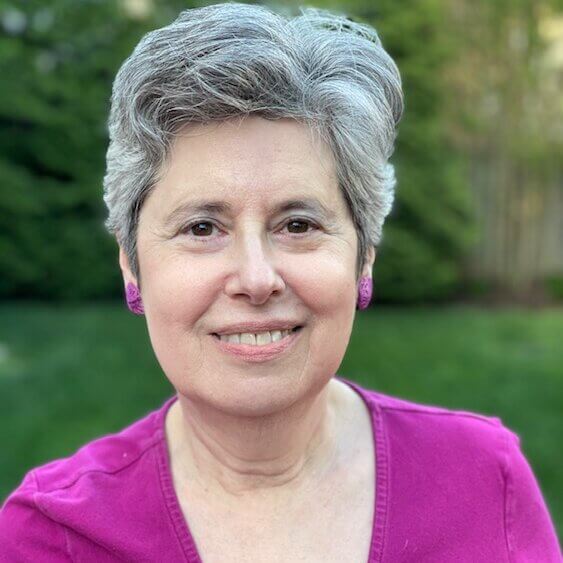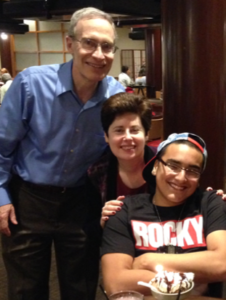Lisa Rubenstein, MHA
Parent Coach (she/her)
Language: English

When I was growing up, various members of my immediate and extended family experienced depression, anxiety, ADHD and bipolar disorder. For this reason, I’ve always been interested in the field of mental health.
My husband and I adopted our son in Paraguay in 1993. We learned that he had suffered from malnutrition which impacted his growth. At that time no one suggested it might impact his mental health as well. The adoption agency required us to complete parent training, but the topics of trauma and mental health were never discussed.
But from the moment we brought our son home, he would often scream and cry for long periods of time and was unable to soothe himself. As he was growing up, I assumed I was always exhausted and stressed because I was just an “older mother” who didn’t know how to parent effectively.
At nine, our son received multiple diagnoses. As he got older, he began to self-medicate with substances. We have learned a great deal on our long and complex journey with our son.
I was very lucky because at the same time as our son was growing up, I was working for the federal government in the Child, Adolescent and Family Branch of the Center for Mental Health Services. Through my work, I was able to learn about children’s mental health and to receive support from my colleagues. I had amazing opportunities to work directly with families in communities around the country, as well as to collaborate with family, youth and provider organizations to create innovative resources and programs to support families with young children, youth and young adults.
I learned that the most important thing for families is to have access to resources, peer support and above all, hope. This is what I truly love about coaching. Coaching is about changing your perspective, creating a hopeful vision for the future, self-care and taking action.
I first learned about coaching when my boss offered free coaching services for his staff. I was amazed at my transformation during just a few months of coaching. At that time, I decided that I wanted to become a coach myself to work directly with parents. Since retirement from the federal government, I launched my company, and then found out about Impact Parents. This is exactly where I need to be! 
- Certified by the Co-Active Training Institute (CTI) Certified Professional Co-Active Coach (CPCC)
- Certified by the International Coaching Federation (ICF) as Associate Certified Coach (ACC)
- Certified Sanity School Trainer with ImpactParents.com
- Completed coach training with Positive Intelligence
- Masters in Health Administration from the Washington University School of Medicine
Prior to becoming a coach, I served as a Public Health Advisor for the US Department of Health and Human Services, from 2002 until 2019. Specifically, I worked in the Child, Adolescent and Family Branch at the Substance Abuse and Mental Health Services Administration, (SAMHSA):
- Provided oversight to federally funded systems of care communities throughout the country, which are collaborative networks of formal and informal supports and services for families with children, youth and young adults with serious mental health challenges.
- Met with families in local communities to ensure they were receiving appropriate services and supports.
- Worked one-on-one with families to identify local resources and services.
- Collaborated with family and youth leaders, the American Psychiatric Association, American Psychological Association and American Academy of Child and Adolescent Psychiatry to create a series of educational materials for families and youth at the time of mental health diagnosis.
- Received multiple awards from SAMHSA for creating and coordinating a national family-driven and youth-guided initiative to raise awareness of the importance of children’s mental health. Initiative included 170+ federal programs and national organizations and 1100 communities across the country.
- Coordinated the first ever national federal conference addressing the needs of families with adopted youth and young adults with behavioral health challenges, Domestic and International Adoption: Strategies to Improve Behavioral Health Outcomes for Youth and Their Families.
- Presented training workshops for families on how to share their stories strategically for education and advocacy.

